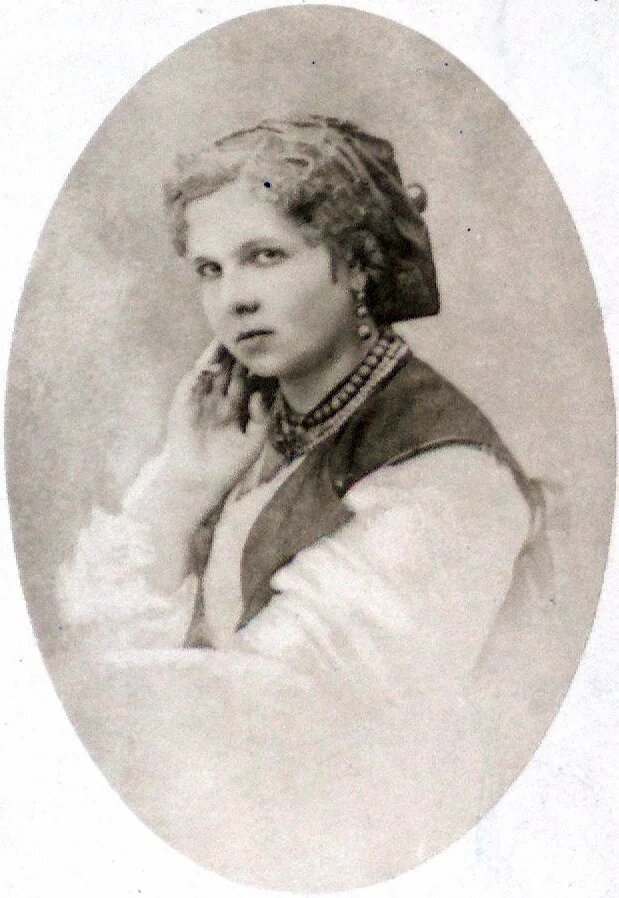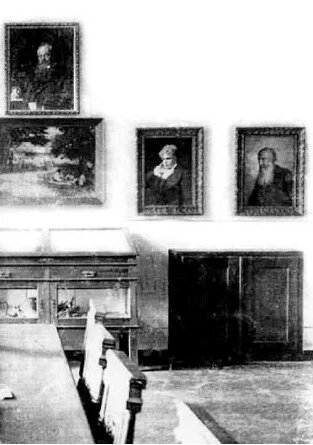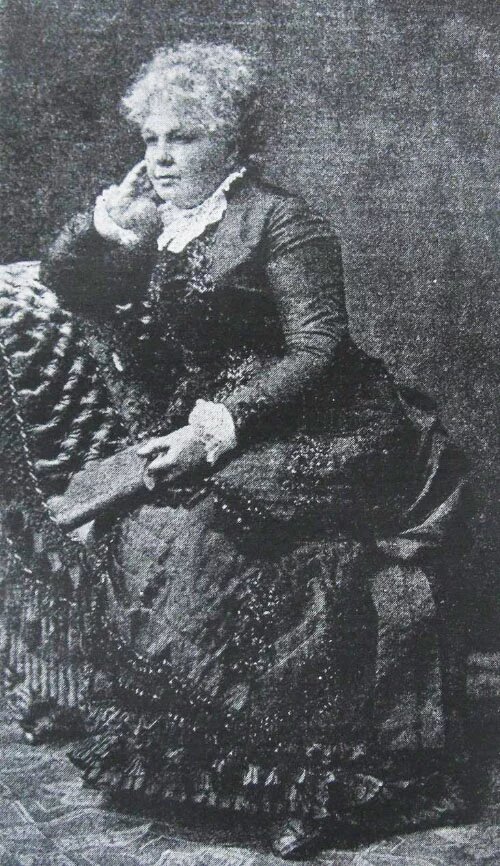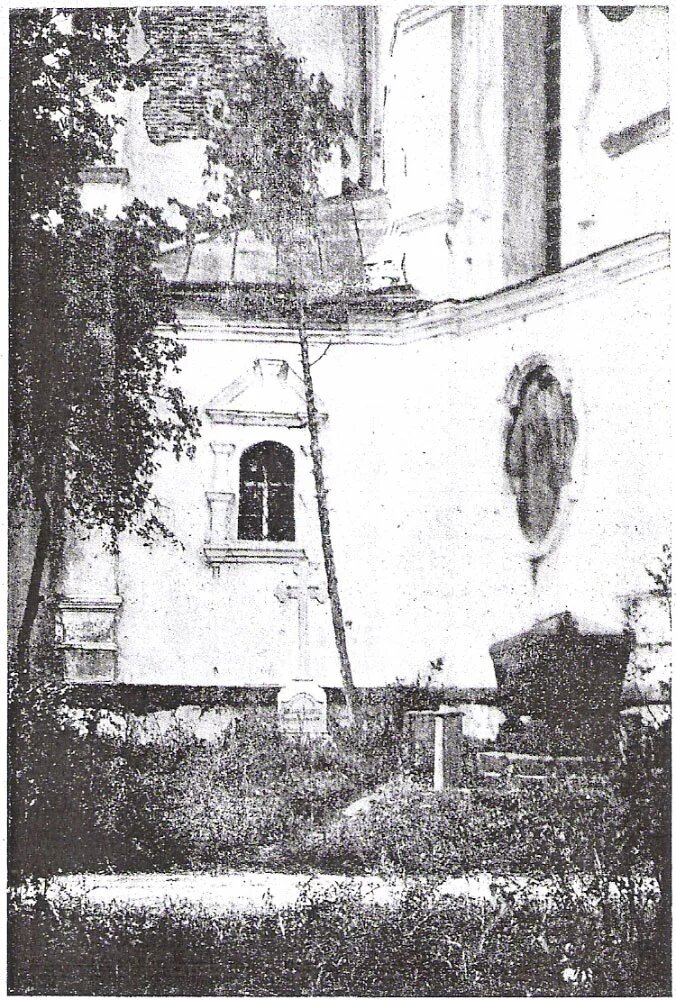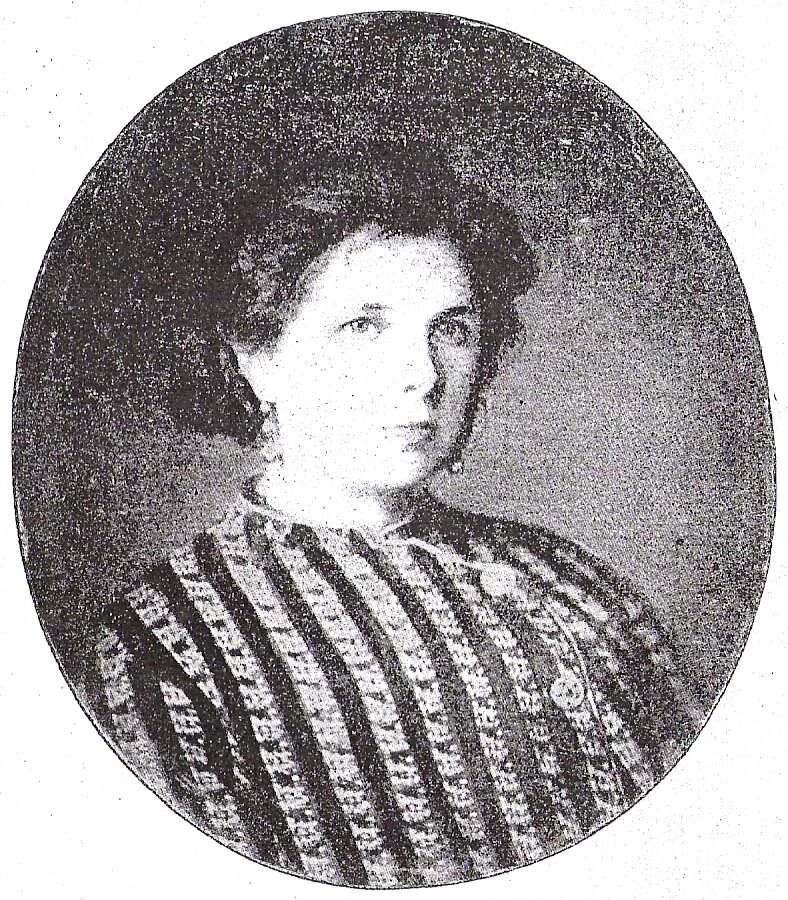
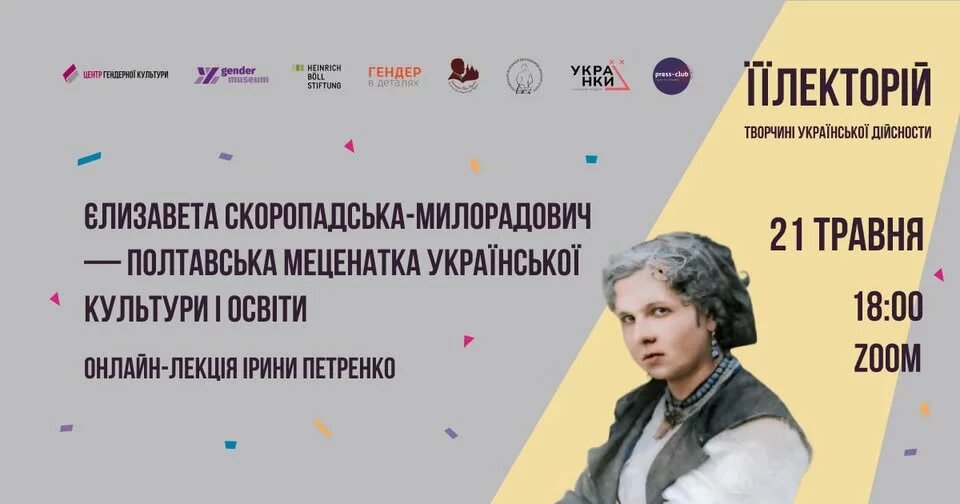
Yelyzaveta Skoropadska-Miloradovych was a noble patriot, philanthropist, women's rights activist, and participant in the social, political, and cultural life of Ukraine in the second half of the 19th century.
Her name is among the founders of the prestigious Taras Shevchenko Scientific Society, which celebrated its 150th anniversary in 2023. With the financial support of Yelyzaveta Skoropadska-Miloradovych, educational institutions were established in Poltava, school textbooks were published in Ukrainian, and orphanages were opened. Yelyzaveta Skoropadska-Miloradovych's patronage had a national component. This is what distinguished her from many progressive people of her time.
Photo 1. Yelyzaveta Miloradovych. Oil portrait, painted in the late 1840s.
National cultural and charitable projects of Yelizaveta Skoropadska-Miloradovych. Yelyzaveta Miloradovych's charity work had a distinct national basis – she consistently developed Ukrainian education and supported domestic cultural projects. Most of her life and active public activity were concentrated in Poltava, where educational institutions – Sunday schools – operated with her active financial support. With the support of Yelyzaveta Miloradovych, public lectures in Ukrainian were organised, and the proceeds from attendance were used to help Sunday schools, libraries, and poor high school students. The first school textbooks in Ukrainian were published at her expense. She was the patroness of the Poltava Women's Diocesan School and the Poltava Women's Gymnasium, providing scholarships to talented students. From 1878 until her death, Countess Elizabeth Miloradovych headed the Poltava Women's Charitable Society, to which she bequeathed her estate with a house and a significant amount of capital. With her assistance, children's shelters were established: she founded a women's society for the care of orphaned children in Poltava and opened orphanages for abandoned infants at her dacha in the village of Gozhuly and Novi Sanzhary near Poltava.
Photo 2. Yelyzaveta Miloradovych in 1860.
Yelyzaveta Skoropadska-Miloradovych was the founder of the Taras Shevchenko Scientific Society. After Ukrainian publications were banned by decree, Yelyzaveta Skoropadska-Miloradovych donated money to the development of the Ukrainian movement in Galicia, in particular to the Prosvita society and the Pravda magazine. In early 1868, Yelyzaveta met Anatol Vakhnyanin, the organiser and first head of the Vienna Sich, a Ukrainian social and political activist. They became friends and she participated in many cultural projects in Galicia. In 1873, Yelyzaveta donated funds to establish a printing house in Lviv, where books in Ukrainian would be published. A literary society formed around her, which the countess named after Taras Shevchenko. The society's printing house quickly launched large-scale publishing activities. Books and magazines printed in Lviv were then secretly smuggled into the Russian Empire. In 1892, the Taras Shevchenko Literary Society was transformed into the Taras Shevchenko Scientific Society. The society operated along the lines of European academies of the time and, by the beginning of the 20th century, was effectively functioning as a Ukrainian academy of sciences, although it did not officially have this status. Thus, Yelyzaveta Miloradovych built a cultural bridge between Western Ukraine and the Dnipro region, uniting pro-Ukrainian movements in the Russian Empire and Austria-Hungary.
Photo 3. Ivan Trush. Portrait of Yelyzaveta Miloradovych in the ceremonial hall of the Shevchenko Scientific Society in Lviv. 1898.
The idea of reviving the Ukrainian hetmanat. Yelyzaveta Skoropadska-Miloradovych courageously promoted the idea of an independent Ukraine and the revival of the hetmanat in the second half of the 19th century. A conscious Ukrainian, she was distinguished by her open opposition to the empire, her initiative, leadership qualities, and non-conformism (both in her clothing and in her actions, which were atypical for women of that time).
Photo 4. Yelyzaveta Miloradovych.
Yelyzaveta Skoropadska-Miloradovych died on 14 February 1890 in Poltava. She was buried in the cemetery of the Poltava Cross Monastery.
Photo 5. The grave of Yelyzaveta Miloradovych in the cemetery of the Poltava Holy Cross Monastery. Next to it (black sarcophagus) is the grave of her husband, Lev Miloradovych. 8 November 1929.
The full recording of the lecture is available at the link.
The lecture was translated using Deepl.
